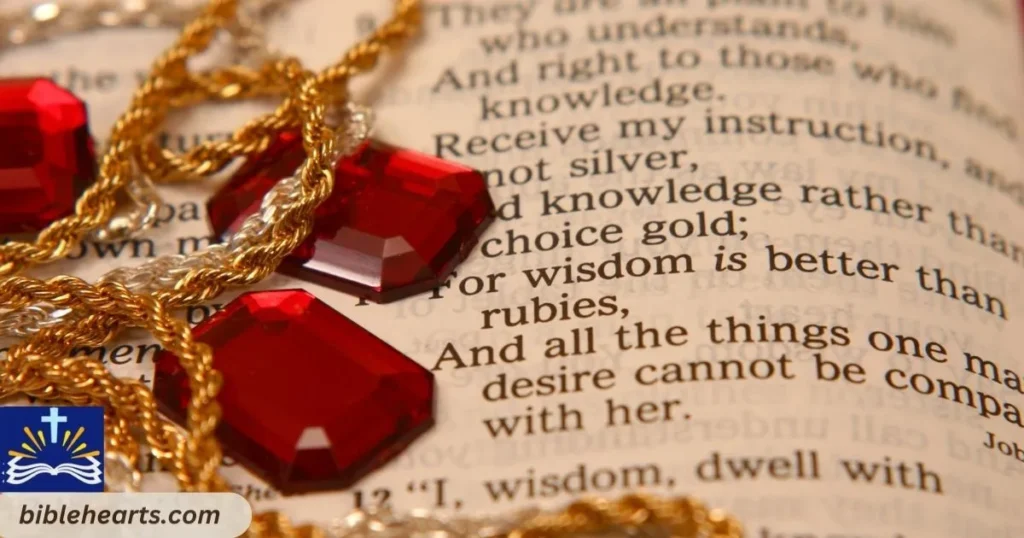Piercings and body adornments hold different meanings across cultures and time periods, and biblical references offer insights into their significance.
Throughout history, piercings and other forms of body adornments have been used for various purposes, including cultural rituals, spiritual practices, and as expressions of identity. For many people today, these physical markings may carry personal, aesthetic, or cultural meanings. However, for those who follow the Bible, the topic of piercings and body modifications can raise questions about their acceptability in the eyes of God. By looking at scripture, we can gain insight into how piercings and body adornments were perceived in biblical times, and what they might symbolize in a spiritual context.
The Bible offers several references to piercings and adornments, often symbolizing deeper meanings such as beauty, status, or even slavery. These verses can help guide Christians in making informed decisions about their body image and spiritual life. While some of these verses might seem to imply restrictions, others highlight body adornments as a sign of blessing or honor.
In this blog post, we will dive deep into key Bible verses about piercings and body adornments. We will explore what these scriptures say, their context, and what they mean for believers today. Along the way, we will answer some common questions about this topic to help you understand how piercings and adornments align with biblical teachings.
Piercings and Body Adornments in the Bible
Leviticus 19:28
“You shall not make any cuts on your body for the dead or tattoo yourselves: I am the Lord.”
This verse is often cited in discussions about body modifications, including piercings and tattoos. The passage comes from the Old Testament and addresses practices that were common among neighboring pagan cultures. God was instructing the Israelites to distinguish themselves from these nations and to avoid rituals associated with death and pagan worship. While this verse condemns certain body practices, it is important to understand that it is more about the motivation and context behind the act, rather than the act of piercing itself.
1 Corinthians 6:19-20
“Or do you not know that your body is a temple of the Holy Spirit within you, whom you have from God? You are not your own, for you were bought with a price. So glorify God in your body.”
This New Testament passage speaks to the idea that Christians should honor God with their bodies, which are considered temples of the Holy Spirit. While this verse doesn’t directly address piercings, it suggests that believers should carefully consider how they treat their bodies. Body adornments, including piercings, should be evaluated with this perspective in mind: does it honor God or detract from the respect and care we should show for our bodies?
1 Peter 3:3-4
“Do not let your adorning be external—the braiding of hair and the putting on of gold jewelry, or the clothing you wear—but let your adorning be the hidden person of the heart with the imperishable beauty of a gentle and quiet spirit, which in God’s sight is very precious.”
Peter reminds Christians that true beauty comes from the heart, not from outward adornment. While this doesn’t outright condemn piercings or jewelry, it emphasizes that spiritual beauty is more important than physical appearance. This can serve as a reminder that while piercings and adornments may be part of our personal style, our inner beauty and character should take precedence.
Ezekiel 16:12
“And I put a ring on your nose and earrings in your ears and a beautiful crown on your head.”
In this passage, God is describing His relationship with the people of Israel, using the metaphor of a bride adorned with precious jewelry. This verse shows that piercings were sometimes used to symbolize honor, beauty, and covenant. In biblical times, a nose ring or earrings could be a symbol of status and honor, and in this case, it represents God’s favor upon Israel.
Genesis 24:22
“When the camels had finished drinking, the man took a gold ring weighing a half shekel, and two bracelets for her arms, weighing ten gold shekels.”
This verse describes how Abraham’s servant gave Rebekah a gold ring and bracelets as part of a betrothal gift. It highlights the use of jewelry and adornments in significant cultural and spiritual contexts, where these items were used to symbolize commitment, wealth, and status. Piercings and adornments can thus be seen as part of the cultural exchange and symbolism in biblical times.
Isaiah 3:18-21
“In that day the Lord will take away the finery of the anklets, the headbands, and the crescents; the pendants, the bracelets, and the scarves; the headdresses, the armlets, the sashes, the perfume boxes, and the amulets…”
This passage condemns excessive and prideful displays of wealth and adornment. God warns against overemphasizing external beauty at the expense of inner virtue. While it speaks to materialism and vanity, it doesn’t prohibit piercings or adornments, but rather calls attention to their purpose and meaning. Adornments should not be about pride or ostentation.
Exodus 32:2-3
“So Aaron said to them, ‘Take off the rings of gold that are in the ears of your wives, your sons, and your daughters, and bring them to me.’ So all the people took off the rings of gold that were in their ears and brought them to Aaron.”
This event, where the Israelites created the golden calf to worship, is a stark reminder that body adornments can be misused for sinful purposes. The gold rings mentioned here are part of the story where idol worship takes place, showing how jewelry and adornments can be connected to spiritual disobedience when placed above God.
Proverbs 11:22
“Like a gold ring in a pig’s snout is a beautiful woman without discretion.”
While this verse does not specifically mention piercings, it uses the imagery of a gold ring to describe a lack of discretion. The comparison highlights the idea that external beauty is meaningless if the inner character is lacking. This can serve as a reminder that adornments, including piercings, should not be valued more than one’s inner qualities and actions.
Song of Solomon 1:10-11
“How delightful is your love, my sister, my bride! How much more delightful is your love than wine, and the fragrance of your perfume more than any spice! Your cheeks are beautiful with earrings, your neck with strings of jewels.”
This passage is a celebratory expression of love, using earrings and other adornments as a metaphor for the bride’s beauty. The use of piercings here is viewed positively, symbolizing the love and admiration of the lover. This indicates that in some contexts, adornments are seen as beautiful and worthy of praise.
Isaiah 61:10

“I will greatly rejoice in the Lord; my soul shall exult in my God; for he has clothed me with the garments of salvation; he has covered me with the robe of righteousness, as a bridegroom decks himself like a priest with a beautiful headdress, and as a bride adorns herself with her jewels.”
This passage speaks of the spiritual adornment given by God, comparing it to the physical adornments a bride wears. While not directly referring to piercings, it uses the imagery of adornments to describe how God’s righteousness beautifies the believer.
Piercings as Adornments
Genesis 35:4
“So they gave to Jacob all the foreign gods that they had and the rings that were in their ears. Jacob hid them under the oak that was near Shechem.”
This verse highlights how earrings were part of the foreign gods and practices that Jacob’s household had collected. The removal of these rings is symbolic of leaving behind idolatry and returning to true worship.
Proverbs 25:12
“Like a gold ring or an ornament of fine gold is a wise reprover to a listening ear.”
Here, a gold ring is used as a metaphor for wisdom. It suggests that a wise person is as valuable as a beautiful adornment. It reflects the idea that adornments, like piercings, can serve a symbolic purpose beyond their physical appearance.
Ezekiel 16:11
“And I adorned you with ornaments, and put bracelets on your wrists and a chain on your neck.”
This passage describes how God adorned His people with jewels and precious adornments as a symbol of His favor and love. Piercings and other adornments were seen as symbols of honor, wealth, and beauty in a spiritual sense.
Exodus 35:22
“And they came, both individuals, all who were of a willing heart, and brought brooches and earrings and signet rings and armlets, all sorts of gold objects to the Lord’s offering.”
This verse highlights the voluntary offering of adornments for the construction of the Tabernacle, showing that piercings and other adornments could be used for sacred purposes.
Hosea 2:13
“And I will punish her for the feast days of the Baals when she burned offerings to them and adorned herself with her ring and jewelry, and went after her lovers and forgot me, declares the Lord.”
This passage shows that adornments can be misused if they are used in the worship of idols or as part of a life away from God. It’s a warning against using adornments for sinful purposes.
Piercings in Relation to Slavery
Exodus 21:6
“Then his master shall bring him to the door or the doorpost. And his master shall bore his ear through with an awl, and he shall be his slave forever.”
This verse refers to the practice of ear-piercing as a sign of permanent slavery. A pierced ear in this context symbolizes a willing servant who stays with their master forever.
Deuteronomy 15:16-17
“But if he says to you, ‘I will not go out from you,’ because he loves you and your household, since he is well off with you, then you shall take an awl and put it through his ear into the door, and he shall be your servant forever. And to your female servant you shall do the same.”
Again, this passage uses piercing as a mark of a permanent bond between servant and master, signifying commitment and loyalty.
Leviticus 25:39-41
“If your brother becomes poor beside you and sells himself to you, you shall not make him serve as a slave. He shall be with you as a hired worker and as a sojourner. He shall serve with you until the year of Jubilee. Then he and his children with him shall go back to his own clan and return to the possession of his fathers.”
In this context, slavery is temporary, but it highlights the importance of treating workers and others with respect and compassion, not as property to be marked with piercings.
Jeremiah 34:14
“At the end of seven years, each of you must let go of your fellow Hebrew who has sold himself to you. When they have served you six years, you must let them go free. But your ancestors did not listen to me or pay attention to me.”
This passage speaks to the ethical treatment of those who were once enslaved. While it doesn’t mention piercings, it underscores the freedom that God intends for His people, which contrasts with the bondage symbolized by piercings in slavery.
Galatians 5:1
“It is for freedom that Christ has set us free. Stand firm, then, and do not let yourselves be burdened again by a yoke of slavery.”
Christ has set believers free, and piercings in the context of slavery serve as a reminder of the freedom and dignity that Christians now have.
Jewelry as a Symbol of Wealth and Status
Jewelry has long been associated with wealth, beauty, and social status. The Bible often reflects these symbolic meanings, highlighting the role of jewelry in both material and spiritual life. Here are some key verses that discuss the symbolic use of jewelry:
Job 42:11
In this verse, Job’s friends give him gold and silver as a sign of respect and reconciliation. Jewelry here symbolizes not only wealth but also restoration and honor in the context of Job’s suffering and recovery. It’s a recognition of God’s faithfulness and the return of prosperity.
Proverbs 1:9
Proverbs refers to wisdom as a garland for the head and a chain for the neck, using jewelry as a metaphor for the beauty and value of wisdom. This verse highlights how adornment can represent virtues such as wisdom, and how these virtues enhance one’s status in life.
Isaiah 3:16-21
Isaiah warns against the excessive use of jewelry, listing various adornments such as anklets, headbands, earrings, and necklaces. Here, jewelry symbolizes vanity and pride. God condemns the overuse of adornments that focus too much on outward appearance, urging humility and inner beauty instead.
Song of Solomon 7:1
In the Song of Solomon, the lover describes the beloved’s beauty, including references to jewels adorning the body. Jewelry in this context symbolizes love and affection, where beauty and adornment serve as expressions of intimate connection and admiration.
Judges 8:24
Gideon asks for gold from the people as part of a tribute, and it is used to create a golden ephod, which becomes a symbol of power. This passage illustrates the role of jewelry in representing authority and the transfer of wealth.
Bible Verses to Get Closer to God
Warnings Against Excessive Adornment
While jewelry and body adornments are often seen in a positive light, the Bible also provides cautionary advice about excessive focus on outward appearance. These scriptures warn that materialism and vanity can overshadow spiritual growth.
1 Timothy 2:9
In 1 Timothy, Paul instructs women to dress modestly, not with elaborate braids or expensive jewelry. This verse emphasizes modesty and humility over the desire to impress others with extravagant adornments, reminding believers that inner beauty is far more important than external appearances.
James 2:2-4
James condemns favoritism in the church based on appearances, using the example of someone wearing fine clothes and a gold ring to illustrate how wealth should not dictate how people are treated. Here, jewelry becomes a symbol of superficial judgment and inequality.
1 Peter 3:3
Peter encourages women to focus on the beauty of a gentle and quiet spirit rather than outward adornment. This highlights that while external adornments like jewelry may be appreciated, spiritual qualities should be the focus of a believer’s identity.
Matthew 6:19-21
Jesus teaches that people should not store up treasures on earth, where moths and rust destroy them. Jewelry, as a form of earthly treasure, should not be the focus of one’s heart or soul. This passage stresses the importance of focusing on eternal treasures in heaven rather than fleeting earthly wealth.
Ezekiel 7:19
Ezekiel warns that wealth, including jewelry, will not save people in times of distress. The adornments people rely on for security and status will be of no value when facing God’s judgment. This underscores the futility of relying on material possessions for true security.
Cultural and Religious Practices
Jewelry and adornment practices in the Bible were deeply intertwined with cultural and religious rituals. They served as expressions of faith, belonging, and devotion.
Judges 17:5
In this passage, Micah makes an idol and places it in his house, along with silver and other precious items. This shows how jewelry and valuables were sometimes used in idol worship, pointing to the dangers of using adornments for purposes other than honoring God.
Genesis 35:2-4
Jacob commands his household to remove foreign gods and jewelry as they prepare to worship God in Bethel. The removal of jewelry symbolizes the shedding of idolatry and the return to pure worship of God, showing that adornments can sometimes represent attachments to things that distract from spiritual devotion.
Exodus 20:4
The second commandment forbids the creation of graven images or idols. Jewelry, particularly in the form of golden calves, became a symbol of idolatry. This verse reminds us that adornments must not replace or compete with our devotion to God.
Leviticus 26:1
God commands the Israelites not to make idols or set up molten images. This commandment connects the issue of adorning oneself with the potential danger of associating jewelry with pagan practices, urging believers to avoid any idolatrous uses of adornment.
Deuteronomy 7:25-26
God warns Israel not to take the gold and silver from the idols they encounter. This passage highlights the danger of associating jewelry with idolatry, as it could lead people to worship false gods.
Piercings and Personal Identity
Piercings, often associated with cultural and personal identity, are mentioned in several Bible verses that discuss how body adornments reflect deeper meanings.
Genesis 41:42
When Pharaoh gives Joseph his signet ring, it symbolizes Joseph’s new position and authority. The ring is a sign of personal transformation and identity change. Though not a piercing, this exchange represents the way adornments can signify new roles or identities.
Jeremiah 4:30
Jeremiah speaks of people adorning themselves in ornaments and piercing their ears, warning them that these practices will not protect them from impending judgment. The piercing here symbolizes a false reliance on external adornment rather than spiritual integrity.
Song of Solomon 4:9
In this poetic verse, the beloved is compared to a queen adorned with jewels. This symbolizes the personal identity and cherished worth of the individual, as adornments are used to express love and value.
Isaiah 49:18

Isaiah speaks of the restoration of Israel, where they will be adorned with beautiful jewelry, symbolizing their renewed identity as God’s people. This verse underscores how adornments can express transformation and divine favor.
Ezekiel 23:40
Ezekiel describes Israel’s sin of adorning herself with earrings and necklaces in the pursuit of idolatry. This reflects how piercings and jewelry can sometimes symbolize a distorted personal identity when focused on false gods.
Jewelry in Worship and Idolatry
In many biblical accounts, jewelry is tied to worship practices, both in honoring God and in idol worship. The Bible emphasizes that adornments should not become idols.
Isaiah 2:20
People are urged to throw away their idols of silver and gold. Jewelry in this context is associated with idolatry, warning that such adornments can distract from true worship and devotion to God.
Exodus 32:4
The Israelites create a golden calf and worship it, using gold jewelry to form the idol. This incident illustrates how jewelry can be misused for idol worship and highlights the dangers of putting value on earthly treasures over God.
Hosea 8:4
Hosea criticizes Israel for creating kings and princes from their silver and gold, representing how the people have misplaced their trust in material wealth and idolatrous practices, including the use of jewelry.
Habakkuk 2:19
Habakkuk warns against making idols of material wealth, which includes the use of precious jewels. Jewelry can symbolize false security when it becomes an idol, rather than a tool for honoring God.
Psalm 115:4
The psalmist points out that idols are made of silver and gold, reflecting the danger of viewing material wealth, including jewelry, as a substitute for true worship and faith.
Gifts of Jewelry
Jewelry also plays a role in the practice of giving gifts, symbolizing honor, love, and respect.
Genesis 24:53
Abraham’s servant gives golden jewelry to Rebekah as a sign of his master’s blessing and honor. Jewelry in this context is a token of goodwill and a meaningful gift that carries both social and spiritual significance.
2 Chronicles 32:27
King Hezekiah is said to have accumulated vast amounts of gold and silver. This highlights how jewelry and wealth can be symbols of royal power and the divine blessing upon a nation.
Daniel 5:29
King Belshazzar rewards Daniel with purple robes and gold chains for interpreting his dream. Jewelry in this context is used as a reward for wisdom and service to the king.
Luke 15:22
In the parable of the prodigal son, the father places a ring on his son’s finger as a symbol of restored relationship and honor. The ring here represents identity, belonging, and the restoration of family ties.
Numbers 31:50
The Israelites offer gold jewelry as part of a tribute to God after a victory. This highlights how jewelry can be used as an offering to honor God for His blessings.
Spiritual Symbolism of Jewelry
Jewelry in the Bible often carries spiritual symbolism, representing both earthly blessings and heavenly rewards.
Revelation 21:21
The gates of the New Jerusalem are made of pearls, and the streets are paved with pure gold. This beautiful imagery symbolizes the eternal beauty and divine perfection that awaits believers in heaven.
Malachi 3:17
God speaks of making His people His treasured possession, implying that they are precious like jewels in His sight. This passage reflects the special value God places on His people.
1 Kings 10:2
The Queen of Sheba brings precious gifts, including jewels, to King Solomon, recognizing his wisdom and wealth. Jewelry here symbolizes the honor given to a wise and just ruler.
Song of Solomon 5:14
In this romantic passage, the lover’s body is described as being like jewels. This symbolizes the deep value and beauty of the beloved, reflecting the love and admiration felt.
Revelation 17:4
The woman in the book of Revelation is adorned with gold and jewels, symbolizing the false beauty of the world and its corrupt ways, contrasting with the purity and holiness of God’s kingdom.
Bible Verses About Piercings and Body Adornments
| Biblical Principle | Application | Scripture Reference |
| Modesty and Humility | Adorn yourself with humility rather than external adornments. | 1 Peter 3:3-4 |
| Inner Beauty Over Outer Adornment | Focus on the inner beauty that is precious in God’s sight. | 1 Samuel 16:7 |
| Avoiding Excessive Ornamentation | Do not focus on outward appearance but on godly character. | 1 Timothy 2:9-10 |
| Cultural Context of Piercing | Piercing in ancient times often had cultural or religious significance. | Ezekiel 16:12 |
| Respecting the Body as God’s Temple | The body is a temple of the Holy Spirit; keep it pure. | 1 Corinthians 6:19-20 |
Key Insight
1. What does the Bible say about piercings?
The Bible provides various perspectives on piercings, with some verses suggesting they can be used symbolically or as part of cultural practices.
2. Are piercings considered sinful in Christianity?
The Bible does not directly condemn piercings, but it encourages modesty and warns against excessive adornment.
3. Can jewelry symbolize wealth and status in the Bible?
Yes, jewelry in the Bible often symbolizes wealth and status, though it is also used to signify beauty, love, and devotion.
4. How does the Bible view excessive adornment?
The Bible advises against excessive adornment, focusing on inner beauty and humility rather than outward appearance.
5. Are piercings mentioned in connection with idolatry?
Some verses connect jewelry and piercings to idolatry, warning against the temptation of placing material possessions above spiritual devotion.
Conclusion
The Bible provides a nuanced view of piercings and body adornments, acknowledging their cultural, spiritual, and symbolic significance while also warning against the dangers of vanity and idolatry. By understanding these biblical perspectives, we can navigate our own relationship with jewelry and adornments in a way that honors God and reflects our inner beauty.
If viewed as symbols of wealth, identity, or spiritual devotion, adornments should always point us back to a deeper understanding of our faith and relationship with God.

Hi! I’m Ethan Matthews, a tech enthusiast and avid traveler, sharing insights and adventures from my journeys around the globe.










